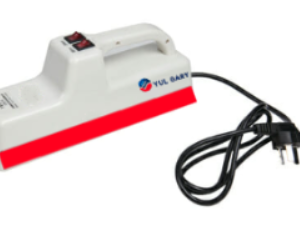Description
The YG1803 UV Transilluminator is a powerful tool for laboratory-grade DNA/RNA gel visualization, featuring a unique triple-wavelength UV system (254nm, 302nm, and 365nm). With a 200×150mm quartz viewing surface and high-efficiency UV lamps, it ensures uniform illumination and perfect gel documentation without the need for a darkroom. Its durable UV filter glass safeguards samples while providing maximum visibility, and the built-in cutting guide offers precision in gel excision. Ideal for molecular biology labs, forensic facilities, and educational institutions, this transilluminator combines reliability with exceptional value, making it an indispensable addition to any laboratory workflow.
Market Price
The YG1803 UV Transilluminator is competitively priced within the mid-range laboratory equipment market. For a product with features that offer triple-wavelength versatility and robust design, it typically falls within a price range of $1500 to $2300. This ensures accessibility for research institutions, universities, and professional laboratories aiming for consistent and reliable results in gel documentation.
Frequently Asked Questions
- Do I need protective eyewear when using this transilluminator? Absolutely! It’s crucial to use UV-blocking goggles and skin protection since the included filter glass protects samples but not the user.
- Can I visualize both DNA and protein gels with this unit? Yes! While the 302nm wavelength excels in visualizing ethidium bromide-stained DNA, the 365nm wavelength is optimal for protein gels stained with fluorescent dyes.
- How long do the UV lamps typically last? The quartz UV lamps offer approximately 2000 hours of use. It’s advisable to have spares to avoid interruptions in workflow.
Advantages and Disadvantages
Advantages
- Triple-Wavelength Versatility – Seamlessly visualizes DNA, RNA, and proteins on a single platform.
- Space-Saving Design – Its compact footprint fits easily on crowded lab benches.
- No Darkroom Required – Built-in UV shielding allows for use in normal lighting conditions.
Disadvantages
- Manual Operation – Does not include the digital imaging capabilities found in more premium systems.
- UV Hazard – Proper safety gear is necessary to prevent user exposure.
- Fixed Viewing Area – The 200×150mm surface can be limiting for some applications.
Product Use in the Field
The YG1803 UV Transilluminator is integral in various applications, especially molecular biology labs for PCR product verification and forensic DNA analysis of restriction digests. It is also widely used in university teaching labs for demonstrating gel electrophoresis and in quality control processes within biotechnology production. Its rugged construction makes it particularly valuable for high-throughput environments, ensuring durability even with daily use. Moreover, its straightforward operation benefits student training environments.
Recommendations
For optimal performance and safety when using the YG1803 UV Transilluminator, always wear UV protection like goggles, lab coat, and gloves. Clean the quartz surface weekly with ethanol to maintain clarity, and document the usage hours of the lamps to anticipate replacements. When not in use, ensure the unit is stored in a dry environment and make use of the cutting guide for precise band excision.
Features
- Triple-Wavelength UV System: 254nm, 302nm, and 365nm
- Quartz Viewing Surface: 200×150mm
- High-Efficiency UV Lamps
- Built-In Cutting Guide for Gel Excision
- Durable UV Filter Glass
- Compact Benchtop Design
Technical Specifications
| Model | YG1803 |
| Transmission size(W×L) | 200×150mm |
| Source ultraviolet wavelength | 302 (nm) |
| Reflectance UV wavelength | 254, 365 (nm) |
| Transmission UV lamp power | 8 (W) |
| Reflectance UV lamp power | 254 nm (11W), 365 nm (11W) |
| Volume(L×W×H) | 435×295×490 (mm) |
| Weight | 16.9 kg |



